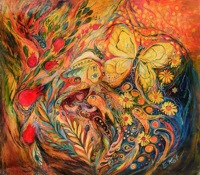Difference between revisions of "Luck"
m (Text replacement - "http://nordan.daynal.org" to "https://nordan.daynal.org") |
m (Text replacement - "http://" to "https://") |
||
| Line 3: | Line 3: | ||
==Etymology== | ==Etymology== | ||
[https://nordan.daynal.org/wiki/index.php?title=English#ca._1100-1500_.09THE_MIDDLE_ENGLISH_PERIOD Middle English] lucke, from Middle Dutch luc; akin to Middle High German gelücke luck | [https://nordan.daynal.org/wiki/index.php?title=English#ca._1100-1500_.09THE_MIDDLE_ENGLISH_PERIOD Middle English] lucke, from Middle Dutch luc; akin to Middle High German gelücke luck | ||
| − | *Date: [ | + | *Date: [https://www.wikipedia.org/wiki/15th_Century 15th century] |
==Definitions== | ==Definitions== | ||
*1 a : a [[force]] that brings good fortune or [[adversity]] | *1 a : a [[force]] that brings good fortune or [[adversity]] | ||
| Line 17: | Line 17: | ||
The term "luck" is pervasive in common [[speech]]. There are at least two senses people usually mean when they use the term, the proscriptive sense and the descriptive sense. In a proscriptive sense, luck is the [[deterministic]] [[concept]] that there is a force which proscribes that certain [[events]] occur very much the way the [[laws]] of [[physics]] will proscribe that certain events occur. In a descriptive sense, luck is only a descriptive [[name]] we give to [[events]] after they occur which we find to be fortuitous. | The term "luck" is pervasive in common [[speech]]. There are at least two senses people usually mean when they use the term, the proscriptive sense and the descriptive sense. In a proscriptive sense, luck is the [[deterministic]] [[concept]] that there is a force which proscribes that certain [[events]] occur very much the way the [[laws]] of [[physics]] will proscribe that certain events occur. In a descriptive sense, luck is only a descriptive [[name]] we give to [[events]] after they occur which we find to be fortuitous. | ||
| − | [[Cultural]] [[views]] of luck vary from [[perceiving]] luck as a matter of [[random]] [[chance]] to attributing to luck explanations of [[faith]] or [[superstition]]. For example, the Romans believed in the embodiment of luck as the Goddess [ | + | [[Cultural]] [[views]] of luck vary from [[perceiving]] luck as a matter of [[random]] [[chance]] to attributing to luck explanations of [[faith]] or [[superstition]]. For example, the Romans believed in the embodiment of luck as the Goddess [https://en.wikipedia.org/wiki/Fortuna Fortuna], while the [[atheist]] and [[philosopher]] [https://en.wikipedia.org/wiki/Daniel_Dennett Daniel Dennett] believes that "luck is mere luck" rather than a property of a [[person]] or [[thing]]. |
| − | [ | + | [https://en.wikipedia.org/wiki/Lucky_Symbols Lucky Symbols] have widespread global appeal and are [[represented]] by [[human]], [[animal]], [[Plant|botanical]] and inanimate objects.[https://en.wikipedia.org/wiki/Luck] |
[[Category: Philosophy]] | [[Category: Philosophy]] | ||
Latest revision as of 01:19, 13 December 2020
Etymology
Middle English lucke, from Middle Dutch luc; akin to Middle High German gelücke luck
- Date: 15th century
Definitions
- b : the events or circumstances that operate for or against an individual
- 2 : favoring chance; also : success <had great luck growing orchids>
Description
Luck or fortuity is good or bad fortune in life caused by accident or chance, and attributed by some to reasons of faith or superstition, which happens beyond a person's control.
The term "luck" is pervasive in common speech. There are at least two senses people usually mean when they use the term, the proscriptive sense and the descriptive sense. In a proscriptive sense, luck is the deterministic concept that there is a force which proscribes that certain events occur very much the way the laws of physics will proscribe that certain events occur. In a descriptive sense, luck is only a descriptive name we give to events after they occur which we find to be fortuitous.
Cultural views of luck vary from perceiving luck as a matter of random chance to attributing to luck explanations of faith or superstition. For example, the Romans believed in the embodiment of luck as the Goddess Fortuna, while the atheist and philosopher Daniel Dennett believes that "luck is mere luck" rather than a property of a person or thing.
Lucky Symbols have widespread global appeal and are represented by human, animal, botanical and inanimate objects.[1]
